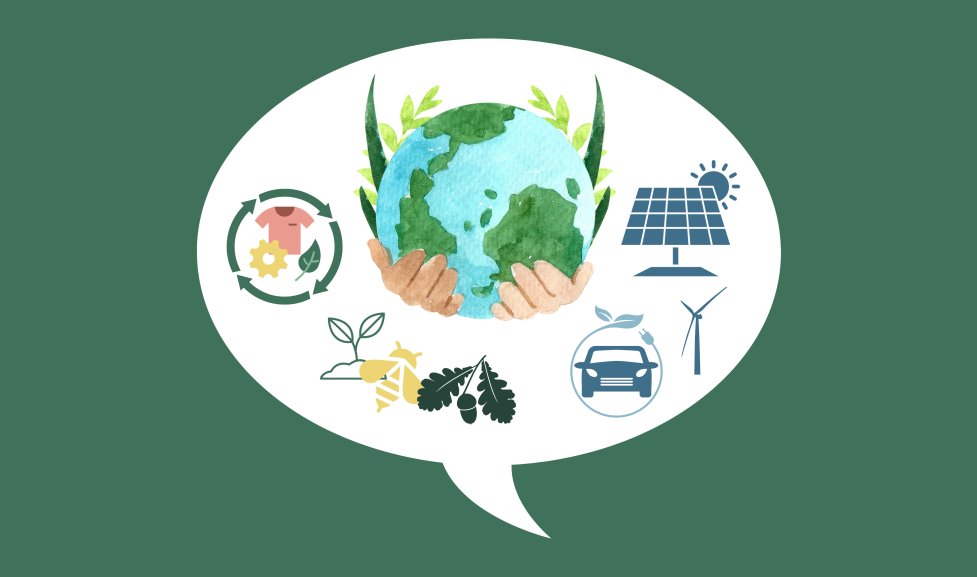The city is hosting three virtual information sessions this summer, each with the goal of deepening the community’s familiarity with city climate work and inspiring collective action.
The series will explore three key areas of local climate work:
-
Renewable, Resilient Energy Systems
Learn how the city is working to electrify Boulder's buildings and vehicles, grow local renewable energy generation, and improve energy access and affordability.
Read the recap and watch the replay. -
Circular Economy
Learn about the city’s efforts to grow and strength a local circular economy, one that reuses, repairs and recirculates existing products and materials for as long as possible
Catch the recap and replay.Listen to highlights from the conversation:Jamie Harkins: The truth is, we can't just recycle and compost our way out of the climate crisis.
Kate Raworth: If we’re going to solve this – if we’re going to turn this story around, we need to bring economic ideas and theories, and governmental policies, and business models and community action of our own. We need to take today’s linear, degenerative industrial economy that runs down the living world, we take, make, use and throw it away – we need to bend those arrows around so that we create a cyclical, circular, regenerative economy in which resources are not used up, they’re used again, and again far more carefully, collectively, creatively and slowly. So that we then belong on this planet because we work with and within the cycles of this living world.
Jonathan Koehn: A circular economy is based on three important principles. First, you eliminate waste and pollution. Second, you circulate products and materials at their highest value. And third, you regenerate nature. So, a circular economy really decouples economic activity from the consumption of finite resources, and that represents a resilient system. And that’s good for businesses, that’s good for people and that’s good for the environment.
Lisa Cutter: We’re burying millions and millions of dollars of valuable materials in our landfills every year. It’s a land use issue. We’re taking up space with landfills that doesn’t need to be taken up. It’s a respect for the commodities – for the resources – that we have access to.
Jamie Harkins: Really the circular economy is about how do we keep those materials at a higher value for as long as possible, through repair, reuse, remanufacturing.
Anna Perks: There’s a lot of good, reusable material in our homes, and yet we recycle cans and then throw away entire houses. We can save a lot of resources by reusing what we already have. I get energized by salvaging things like flooring, cabinets, doors, appliances, dimensional lumber...and then seeing someone else use those materials and give them a second life somewhere else.
Verity Noble: We offer groceries in reusable packaging or in no packaging at all. We need to find a way to stem that tide of trash that’s being produced.
Jamie Harkins: One of the biggest levers we have to influence this is through policy.
Randy Moorman: We have to adopt new policies, like House Bill 22-1355 that was passed this year – the Producer Responsibility Act. And we need to direct funding and resources to recycling end-market development as we did in House Bill 22-1159 that establishes the Circular Economy Center. These policies are the building blocks to a circular economy in Colorado.
Music attribution: "Brushed Bells Leaving Home" by Daniel Birch is licensed under CC BY-NC-ND 4.0.
-
Nature-Based Climate Solutions – Aug. 17, 5:30 to 7 p.m.
Learn about Cool Boulder, a community-wide effort to cool our city, foster biodiversity and absorb carbon through nature-based climate solutions, namely connected canopies, pollinator gardens and absorbent landscapes.
Each session will discuss city climate initiatives, programs, partnerships and ways to get involved in local action. Learn more about the series.
